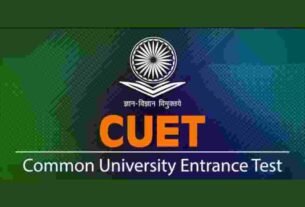The recent ruling by the Supreme Court regarding domicile-based reservation for the National Eligibility cum Entrance Test for Postgraduate (NEET PG) has generated significant attention and debate within the legal and educational communities. This decision stems from a challenge to the constitutionality of state-imposed domicile regulations, which aimed to provide preferential treatment to candidates based on their residency. Proponents of domicile-based reservations argue that these measures are essential for safeguarding local interests and promoting access for students from economically weaker sections. They contend that local students often face disadvantages in competitive exams, and reservations can provide them with fair opportunities.
On the other hand, opponents of such policies argue that domicile-based reservations lead to discrimination and violate fundamental principles of equality enshrined in the Indian Constitution. They assert that merit should be the primary criterion for admission into postgraduate medical courses rather than domicile status. This argument reflects the broader tension between the desire for equitable access to education and the principles of meritocracy, which are key components of fairness in academic institutions.
The Supreme Court’s decision considered various constitutional principles, including the right to equality under Article 14, the right to freedom of movement under Article 19, and the need for a level playing field for all candidates. The court found that domicile-based reservations could potentially infringe upon these rights, ultimately declaring them unconstitutional. The ruling emphasized the necessity of ensuring that admissions are based solely on merit, thereby upholding the integrity of educational standards. As a result, the judgment marks a pivotal moment in the discourse surrounding educational policy and affirmative action in India, prompting reflections on the balance between local interests and national standards.
Impact on NEET PG Admissions
The Supreme Court’s recent ruling deeming domicile-based reservations for NEET PG admissions unconstitutional has had a profound effect on the medical education landscape across the country. This landmark decision challenges the established norms surrounding state-specific quotas, thereby reshaping the admission process for aspiring medical professionals. The immediate aftermath of this ruling may lead to a more centralized and uniform admission procedure where meritocracy prevails over regional considerations.
One of the most significant implications of this ruling is the potential reduction or outright elimination of state quotas. Previously, state quotas enabled local candidates to secure seats in postgraduate medical programs, which inadvertently fostered a sense of regional favoritism. The removal of such quotas could lead to increased competition among candidates nationwide. As a result, students from less populated or underrepresented regions may face difficulties in securing placements in high-demand institutions, thereby impacting overall enrollment numbers across medical colleges.
Furthermore, this ruling may influence how aspiring medical students select their colleges. Given that the admission process will prioritize national merit over domicile status, candidates may consider applying to a wider range of colleges across different states. This shift could foster diversity within medical institutions, enhancing the learning environment as students bring varying perspectives and experiences into their academic journeys. However, this added layer of competition may also necessitate increased preparation and support for candidates from regions traditionally reliant on domicile-based reservations.
The Supreme Court’s ruling therefore poses both challenges and opportunities for aspiring medical students. While the shift to a merit-based system aims to promote fairness and inclusivity, it also highlights the need for broader access to educational resources and support mechanisms to level the playing field for all candidates irrespective of their geographical backgrounds.
Reactions from Various Stakeholders
The recent ruling by the Supreme Court, declaring domicile-based reservation for NEET PG unconstitutional, has elicited a diverse range of responses from stakeholders across the educational and healthcare sectors. Medical students, particularly those directly affected by the decision, have expressed their mixed sentiments. Many students argue that the ruling undermines opportunities for local candidates who may have limited access to resources and training compared to their counterparts from more urban backgrounds. They view the decision as a setback that could exacerbate existing disparities in medical education.
Educational institutions have also weighed in on this matter, highlighting the balance between merit and equity in admissions. Some institutions have advocated for a merit-based system, suggesting that it ensures that the best-qualified candidates are selected for medical training, ultimately benefiting the healthcare system. However, others have cautioned that an entirely meritocratic framework could sideline marginalized students who have historically faced barriers in accessing quality education. This dichotomy illustrates the ongoing debate regarding the fairness of admissions processes in medical colleges.
Government officials have responded with a mix of disappointment and support for the ruling. Some officials believe that domicile-based reservations help address regional imbalances in healthcare, ensuring that medical practitioners serve in their local areas. Conversely, other officials praise the Supreme Court for reinforcing the principle of meritocracy in education. Political entities have also engaged in this discussion, with differing opinions on the future of reservation policies. Certain parties may support the idea of reintroducing domicile-based quotas, arguing that it is essential for regional representation in healthcare professions, while others may push for more universal standards in medical education.
Health experts have chimed in on the implications of the ruling for the medical workforce. They caution that while merit is crucial, neglecting regional needs may lead to an uneven distribution of healthcare professionals across the country, which could impact patient care, particularly in rural and underprivileged areas.
Looking Ahead: Potential Reforms and Future Legislation
The Supreme Court’s ruling declaring domicile-based reservation for NEET PG unconstitutional opens the door for significant reforms in the landscape of medical admissions in India. In light of this decision, state governments may need to reassess their policies to align with a merit-based system that emphasizes qualifications and competencies over geographical criteria. Such reforms could lead to a more standardized approach across states, ensuring that medical education is accessible based on merit rather than residency status.
A shift towards merit-based admission can potentially enhance the quality of medical professionals entering the workforce. By prioritizing the capabilities of candidates, states may cultivate a more competitive environment wherein only the most qualified individuals secure seats in medical colleges. This could, in turn, improve the overall standards of healthcare service delivery across the nation, as the excellence of medical education directly correlates with patient care outcomes.
Moreover, the implications of this ruling may extend beyond immediate policy changes. It may serve as a precedent for future legal cases related to educational equity, prompting broader discussions on how to balance regional representation with the need for high-quality education. Policymakers might face pressure to adapt not only their admission strategies but also the funding and resources allocated to educational institutions, ensuring that all candidates, regardless of their background, receive equitable opportunities to succeed.
In the broader context, this ruling may instigate a national discourse on educational equity, potentially influencing how public health systems are structured. As the need for a robust healthcare workforce becomes more apparent, a national-level conversation on access to medical education and the removal of discriminatory practices could emerge, ultimately shaping future legislative changes. The court’s ruling marks a pivotal moment, signaling a shift towards fairer educational practices while emphasizing the importance of qualified medical professionals for the nation’s health system.





